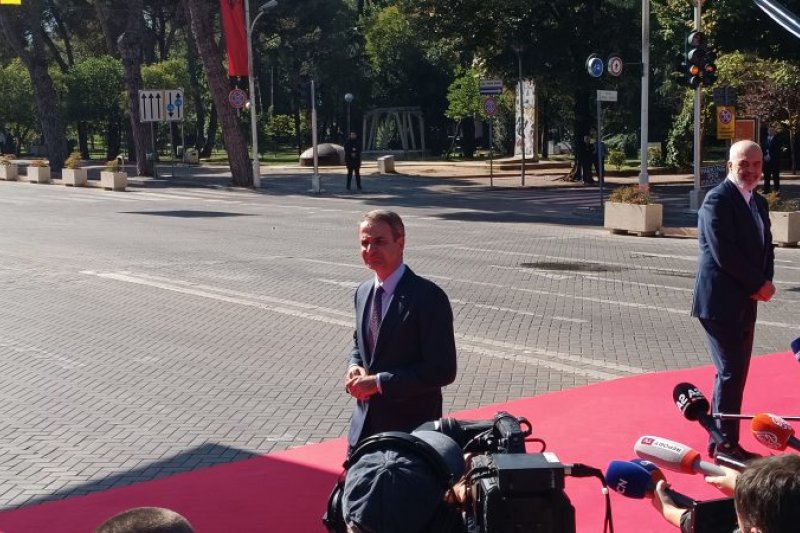Greece Pressures Albania to Show ‘Way Out’ of Bilateral Crisis
Athens is putting pressure on Tirana to find an opportunity to resolve the bilateral crisis.
According to Euractiv, Greece is hindering Albania by not signing a letter from the 27 member countries addressed to the EU Commission that opens the first 5 chapters of the negotiation.
Tensions between Greece and Albania have faded since May, when the elected mayor of Himara, Fredi Beleri, who ran under the "We Win Together" logo, was arrested two days before local elections, accused of vote-buying. He won the local elections in Himara, but has not been allowed to be sworn in as mayor, despite his requests in court to be allowed to be sworn in or to be given a lighter security measure.
Athens has repeatedly called on Albania to allow Fredi Beleri to take the oath, describing him as politically and ethnically motivated. The Albanian government has said that it cannot interfere in court proceedings and the justice system must follow its own path.
Over the weekend, Greek media outlet Kathimerini reported that Athens had refused to sign a letter asking the Commission to open the first five chapters of the negotiations. And the news was confirmed to Euractiv by an EU Council source.
-No invitation to Rama at the dinner in Athens
Senior EU and Western Balkan leaders attended an informal dinner in August in Athens at the invitation of the Greek Prime Minister. However, Kyriakos Mitsotakis' invitation to Prime Minister Edi Rama, who was absent from the organized dinner, was missing.
This decision was taken due to issues that, according to official Athens, were related to the rule of law, such as the case of Beleri and the implementation of some laws related to the Greek minority in Albania, such as property rights.
Sources at the time told Euractiv that there were also problems with the ongoing census, where it was claimed that members of the Greek minority were not asked about religion or language.
"Athens is not closing the door on EU accession, but there are some issues that need to be resolved. With the way things have been for three weeks now, the process cannot continue," a source told Euractiv, regarding Greece's decision not to sign the letter, adding that the Albanian side should find the opportunity to resolve the crisis for the "Beleri" case.
Athens demands that he be allowed to be sworn in as mayor of Himara Municipality, as according to them, this is an administrative decision that can be taken by the Albanian government, not by the judiciary.
Other oath measures can be taken by a notary or competent official in the prison premises or by the individual accompanying the institution under police guard.
Sali Berisha, former president and former prime minister of the country, who is currently under criminal investigation himself, stated that the police and the prosecutor staged Beleri's arrest and trial.
In a recent interview, Prime Minister Rama has repeated that "he has no hand in this situation" and cannot intervene in any way.
"I believe I have done my part to explain this. It is not a debate between the Albanian government and the Greek government because it has to do with justice...it is in the hands of the justice system."
He added, "In the end, whatever anyone says will not solve a problem that can only be solved through justice."
When asked if Beleri should be allowed to swear, he said: "There are different theories about that, but the point is, anyway, that has to be determined by the court."
Critics in Athens have said there is a business motive behind Beleri's arrest, hinting that the Albanian government wants to keep control of building permits issued in Himara, a popular summer destination with a lucrative real estate market.
"Therefore, Beleri, who represents the Greek minority and the Albanian opposition, is seen as a political threat, something that Tirana denies", writes Euractiv.
About 0.9% of Albania's population identifies as ethnic Greek, and although the actual number is questioned by some in politics and civil society, Greeks are recognized as an official minority.
While some communities in the south of the country, including Himara, speak Greek and some road signs appear in Greek, Albanian nationalists say they simply identify as Greek to receive Greek (and de facto EU) passports and money from Athens.













